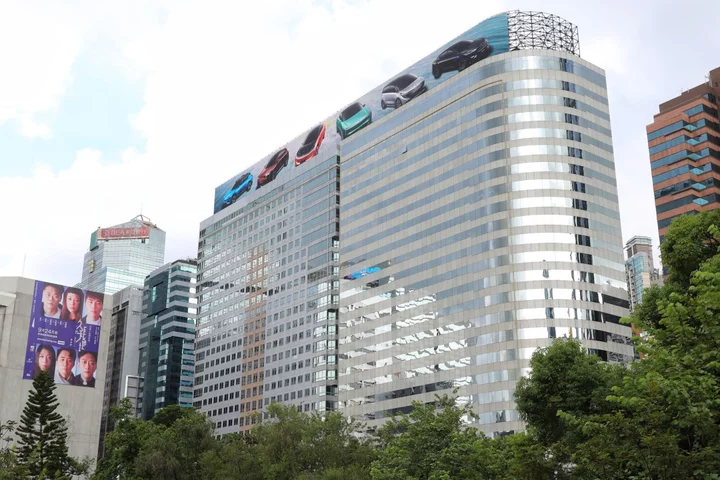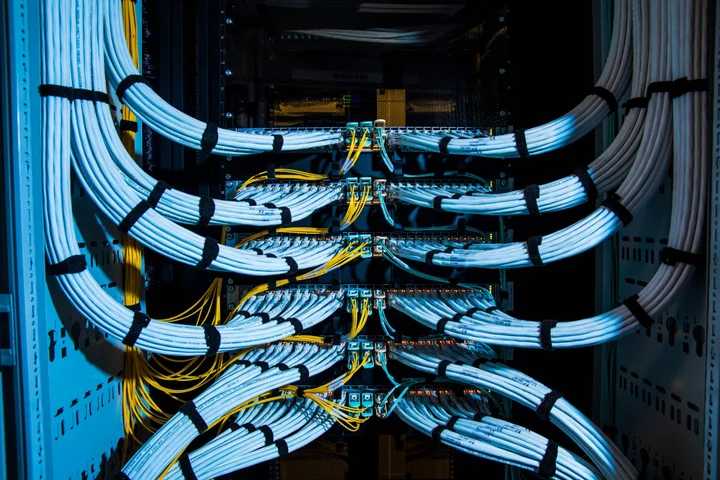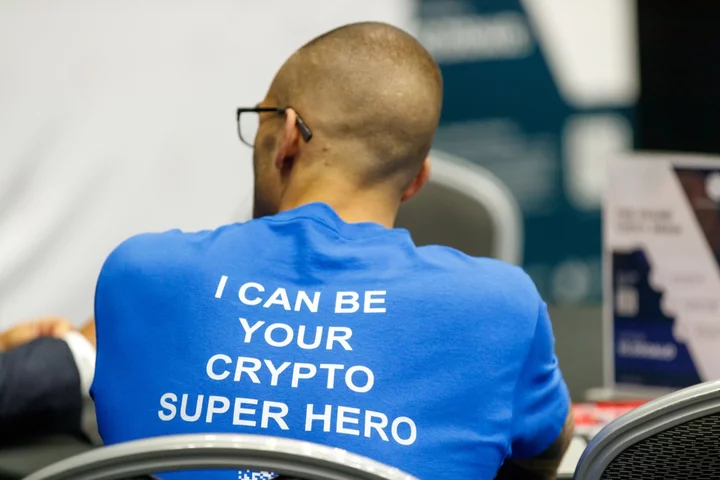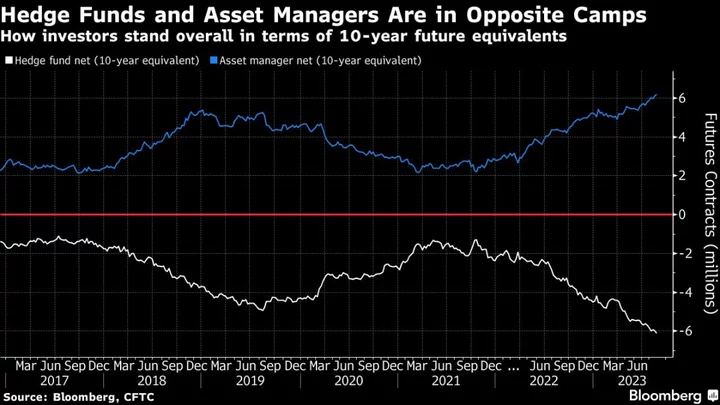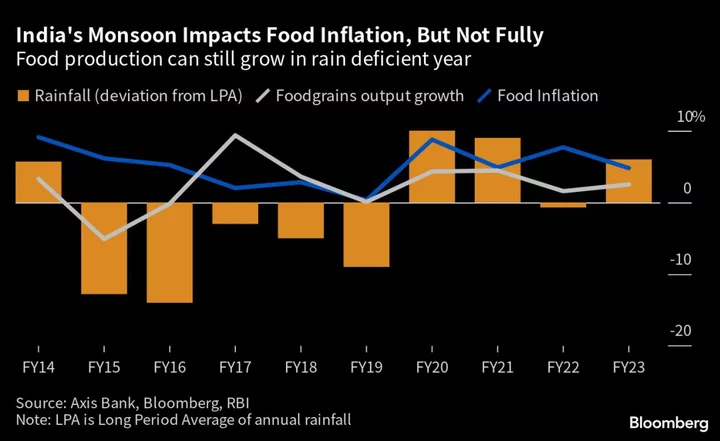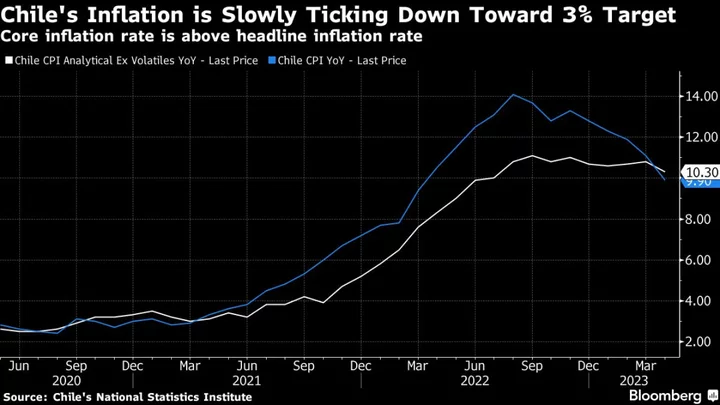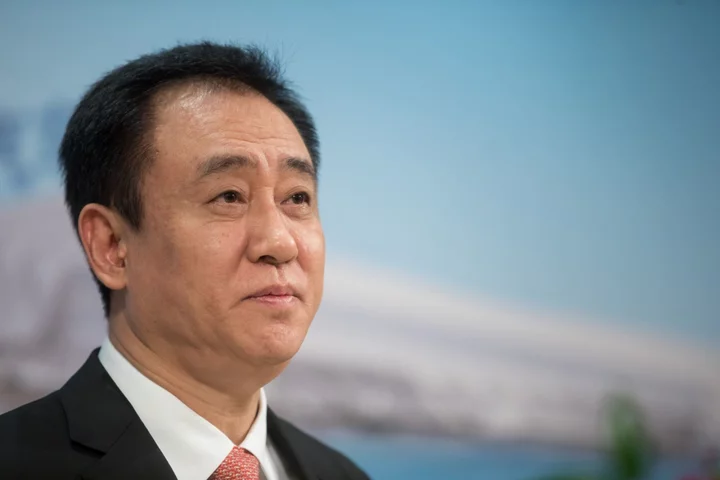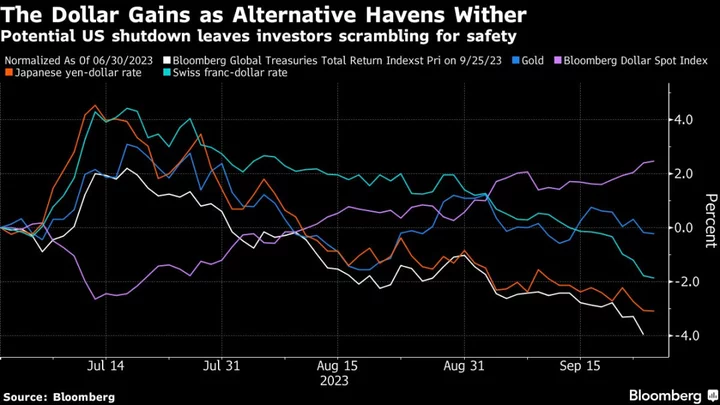Nothing symbolizes the demise of China Evergrande Group like the Hong Kong tower that it bought for a record $1.6 billion. Once a jewel in the developer’s crown, creditors are still trying to sell the building almost a year after seizing it.
Refurbishments and a name change to steer clear of the disgraced defaulter have failed to convince buyers at a time when Hong Kong’s office market is going through its worst downturn in years.
Evergrande’s financial woes even started to affect operations at the building, which sits in Hong Kong’s busy Wan Chai district. Three of its 11 elevators weren’t running because the developer had failed to pay the contractor, said Godfrey Cheng, deputy senior director at Savills (Hong Kong), an agent for the receivers. Maintenance work has since begun, Cheng said.
That hasn’t been enough to boost the value of the tower, with the low end estimated at almost $1 billion below what Evergrande paid for it in 2015, suggesting severe losses for the company and the lenders behind the loans that it backed. It’s also a blow to other creditors who are waiting for recovery from a debt restructuring plan, which the developer is now trying to expedite after this week revealing losses totaling $81 billion in long-delayed results.
The impasse signals a harsh reality for secured lenders of China’s defaulted developers: trophy assets in Hong Kong that were purchased at record prices may not attract acceptable bids even at a steep discount, complicating efforts to recover debts. What’s standing in their way is a tug of war with bidders in a commercial real estate market that is now seeing record vacancies.
There have been “quite a few serious inquiries” for distressed assets under receivership, including the former China Evergrande Centre, said Tiffany Wong, managing director with Alvarez & Marsal’s restructuring practice in Hong Kong, which acts as the receiver of the tower. But few deals were reached because of “a wide gap in expectations of the fair value of the property,” she said in an interview.
Wong declined to share further information about the status of efforts to sell the Evergrande building, when asked by Bloomberg News.
Savills has done roadshows in Beijing and Shanghai to seek buyers of the 26-floor tower, now named the YF Life Centre, along with other assets. “More Mandarin speakers came to the city to check out the building after the border opened, which is a good sign at least,” Cheng said. “But no agreement was reached.”
Efforts to sell the building are ongoing.
Evergrande, the building’s agent, the receiver and creditor China Citic Bank International Ltd. didn’t provide valuations for the tower to Bloomberg News. But several surveyors who specialize in the area gave estimates that ranged from about HK$5.2 billion to HK$7 billion ($670 million to $900 million). The surveyors asked not to be identified because their estimates are private.
That’s less than the HK$7.6 billion in loans that the property was used as security for by lenders including China Citic Bank International.
Evergrande and China Citic Bank International didn’t respond to requests for comment.
Despite the discount, a failure to make a deal with some deep-pocketed buyers — including CK Asset Holdings Ltd., which submitted a bid to a tender sale in July 2022 — further underscores the dimmed market outlook.
Reluctant Buyers
The struggle to offload assets isn’t just in the financial hub. Another distressed builder, Shimao Group Holdings Ltd., recently failed to find a buyer for a $1.8 billion project in Shenzhen, despite a hefty price cut. But it’s the properties in Hong Kong that may be of greater concern to creditors because they have historically been regarded as easier to sell, and at a high price.
“As a potential buyer, snapping up a building from the receiver is not just a matter of spending a huge chunk of money in the purchase,” said Kevin Song, managing director of restructuring at Kroll LLC. “You must consider the further investment required after the purchase and steps to ensuring the future income stream.”
Hong Kong’s commercial property market is at its worst in almost a decade. Office values have declined about 35% from their peak in 2018 to the lowest since 2016, according to Colliers International Group Inc. Western firms’ cost-cutting efforts and Chinese companies’ slower-than-expected return to the city have limited demand for offices.
The city’s overall grade A vacancy rate was almost 15% in May, more than three times higher than in 2019, Colliers data show. With interest rates rising along with supply, investors have little incentive to bet on Hong Kong’s office blocks.
A recent deal offers a glimpse into what distressed sales can get. The Goldin Financial Global Centre sold for HK$5.6 billion to investment firms after two years of trying, way shy of its estimated value of as much as HK$16.5 billion.
Debt recovery from other distressed Chinese companies also hinges on offloading the buildings they splurged on just a few years ago. Coming in August is the close of a tender offer for commercial building Cheung Kei Center, now also in receivership. It was seized over debt owed by property tycoon Chen Hongtian. Shimao Chairman Hui Wing Mau has also put up two floors of The Center for sale. No buyer has emerged yet.
--With assistance from Shawna Kwan.

